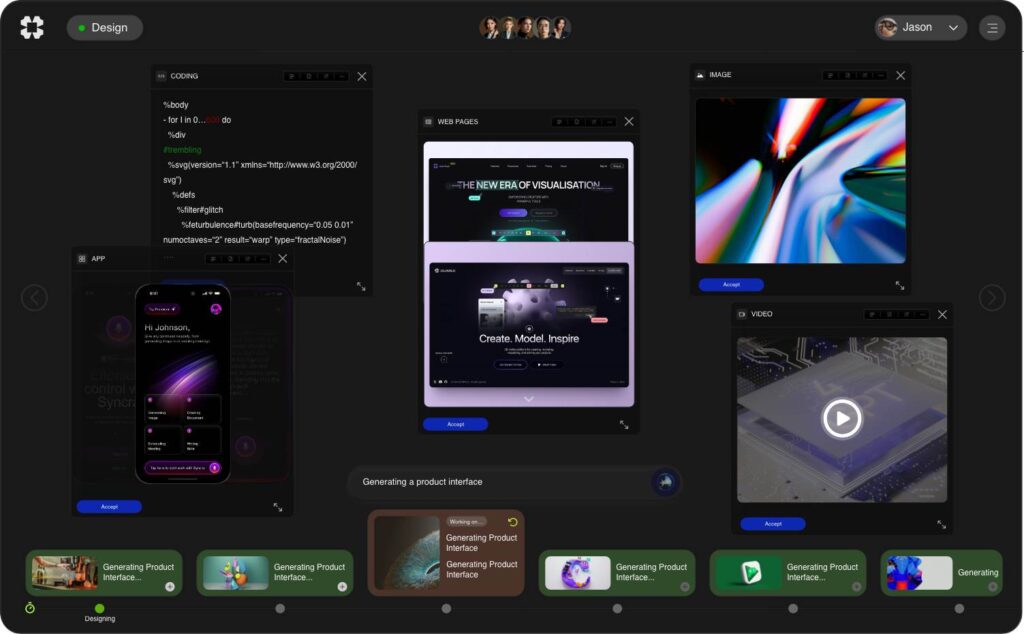Artificial Intelligence (AI) is no longer a distant futuristic concept; it is increasingly becoming integral to various aspects of our lives. From autonomous vehicles patrolling urban streets to sophisticated algorithms predicting consumer behavior, AI technology is reshaping industries and urban landscapes alike. This article delves into how AI is revolutionizing smart cities and enhancing business intelligence solutions, driving innovation, efficiency, and sustainability.
As cities worldwide grapple with challenges such as density, pollution, and public safety, AI offers transformative solutions to manage these issues effectively. The integration of AI in smart cities promises not only to enhance the quality of life for residents but also to optimize resource allocation and improve infrastructure management. For instance, smart traffic management systems utilize AI algorithms to analyze real-time data from cameras and sensors to manage traffic flow. According to a report by McKinsey, cities that adopt AI-driven traffic management systems can reduce congestion by up to 30% and significantly lower pollution levels.
Moreover, AI technologies help in waste management by predicting collection times and optimizing routes for waste disposal vehicles. By harnessing data from IoT devices, cities can streamline their waste collection processes, ensuring efficient use of manpower and resources. A prime example is the city of Barcelona, which implemented an AI-driven waste management system, resulting in a 20% reduction in operational costs while also increasing recycling rates.
Public safety is another domain where AI technologies are making a significant impact. Surveillance systems powered by AI can identify unusual behavior in real time, allowing law enforcement to respond proactively to potential threats. For example, in places like London, AI systems analyze data from CCTV cameras to detect suspicious activities, thereby helping to enhance public safety. However, the implementation of such technologies raises concerns about privacy and data protection, necessitating a careful consideration of ethical implications.
Transitioning to the realm of business, AI for business intelligence solutions is changing how organizations operate and make decisions. Traditionally, businesses relied on historical data to inform their strategies. However, with AI, organizations can analyze vast amounts of data in real time, gaining insights that were previously unattainable. AI algorithms can identify patterns, forecast trends, and make recommendations that drive more informed decision-making.
For instance, companies like Salesforce have integrated AI into their customer relationship management systems, allowing businesses to harness predictive analytics to understand customer preferences better. This enables organizations to tailor their marketing strategies, ultimately enhancing customer satisfaction and loyalty. According to a Gartner report, organizations that leverage AI for business intelligence can increase their productivity by up to 40%, highlighting the significant potential of this technology.
Furthermore, AI technologies are playing a crucial role in risk management across industries. In finance, for instance, AI algorithms are utilized to detect fraudulent transactions by analyzing anomalies in spending patterns. By automating this process, financial institutions can mitigate risks and prevent financial losses. Similarly, in manufacturing, AI-driven predictive maintenance tools analyze machine performance, predicting failures before they occur and reducing downtime.
AI is also revolutionizing supply chain management, offering solutions that improve transparency and efficiency. By analyzing data from various sources, businesses can optimize their inventory levels, reducing costs while meeting customer demands. Companies like Amazon continuously leverage AI to improve their supply chain, utilizing real-time data analytics to manage orders and deliveries dynamically.
The future of AI is closely tied to the advancement of machine learning and deep learning technologies. These techniques enable systems to learn from data, improving their accuracy over time. As businesses embrace AI, the need for skilled professionals in data science, machine learning, and AI ethics will become critical. Organizations must invest in training their workforce to navigate the complexities of these technologies effectively.
**Emerging Trends and Solutions in AI Technology**
As the adoption of AI technology continues to grow, several trends are emerging that will shape its future in smart cities and business intelligence solutions. One significant trend is the increased focus on explainable AI (XAI). Organizations are recognizing the importance of understanding AI decision-making processes to boost trust and transparency. This is particularly crucial in smart cities where decisions made by AI can significantly impact residents’ lives.
Another trend is the shift towards edge computing. By processing data closer to where it is generated, edge computing enables real-time analysis and response, crucial for applications in smart cities such as autonomous vehicles and smart traffic management. Combining AI with edge computing will enhance the capability of systems to make instantaneous decisions, improving efficiency and safety in urban environments.
Sustainability is also becoming a key focus area as cities seek to combat climate change. AI technology can play a pivotal role in environmental monitoring, energy management, and optimizing public transportation systems. For instance, using AI to manage energy consumption in buildings can lead to significant reductions in greenhouse gas emissions, contributing to a sustainable future.
Finally, the integration of AI with blockchain technology is poised to enhance data security and transparency in both smart cities and business intelligence. Blockchain can provide a secure, decentralized ledger, allowing cities to manage data from various sources with greater integrity and trust.
**Real-World Applications of AI in Smart Cities and Business Intelligence**
Several cities and organizations exemplify the successful integration of AI technology into their operations. In Singapore, the Smart Nation initiative utilizes AI to enhance urban living by optimizing transportation, healthcare, and public safety. The integration of smart traffic systems has led to a 15% reduction in traffic congestion, while AI-driven healthcare solutions have improved patient care and resource allocation within hospitals.
On the business front, companies like IBM and Accenture are leading the way in offering AI-powered business intelligence solutions. IBM’s Watson Analytics utilizes machine learning to analyze patterns in business data, providing actionable insights that inform strategic decisions. Similarly, Accenture’s AI solutions enable businesses to automate processes, enhance customer experiences, and drive innovation.
In summary, AI technology is revolutionizing both smart cities and business intelligence solutions, offering innovative approaches to some of the most pressing challenges faced by urban environments and businesses today. As we continue to explore the capabilities of AI, it is essential to address ethical considerations, invest in workforce training, and promote responsible AI practices to ensure a brighter future for all stakeholders.
In conclusion, the rapid evolution of AI technology presents an array of opportunities and challenges. By embracing AI for smarter cities and enhanced business intelligence, we can pave the way for a sustainable, efficient, and connected future. As organizations continue to harness the power of AI, we can expect groundbreaking advancements that will shape the way we live and work.
**Sources:**
1. McKinsey & Company. “AI and the Future of Mobility.”
2. Gartner. “Forecast: Artificial Intelligence in Business, Worldwide, 2019-2021.”
3. Salesforce. “The Future of Customer Relationship Management with AI.”
4. World Economic Forum. “How AI is Transforming Smart Cities.”
5. IBM. “Watson Analytics: Understanding Patterns in Business Data.”



















